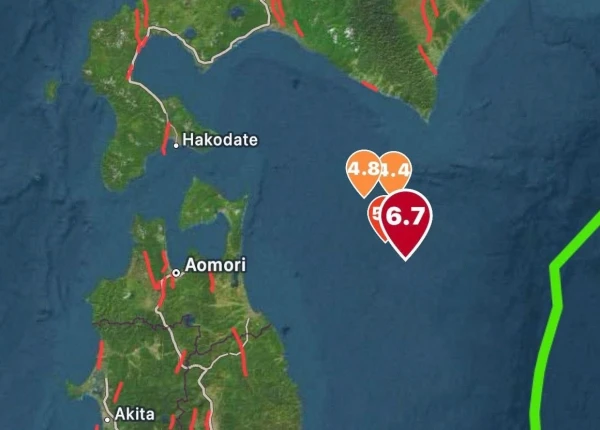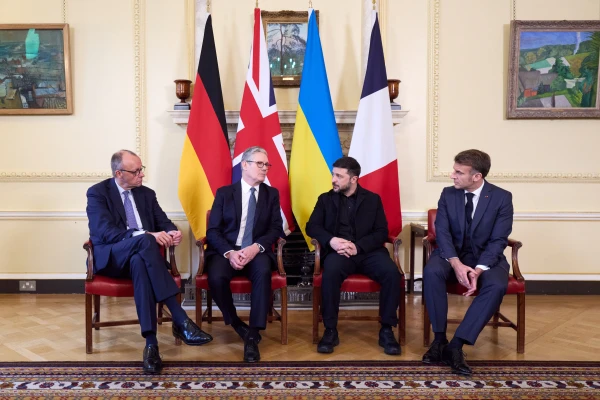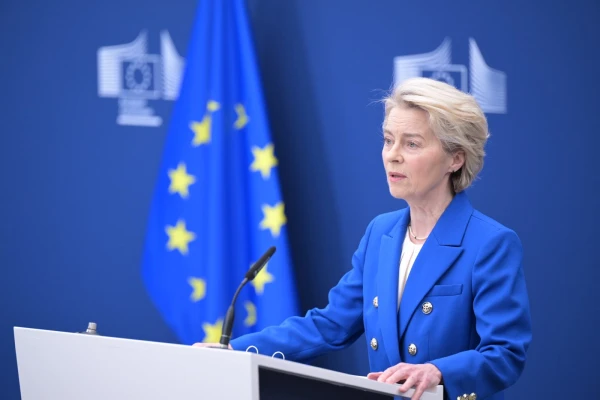
Spain's pro-Palestinian position contradicts the overall pro-Israeli sentiments in the EU.
Among all European countries criticizing Israel today, one stands out with the sharpest and most uncompromising rhetoric towards Tel Aviv. Spain has adopted a whole plan to counter Israel and has even expressed regret over not having an atomic bomb for these purposes. Why has Madrid found itself at the forefront of anti-Israeli protests? Key Spanish military bases on the western European continent, Rota and Morón de la Frontera, can no longer be used for the transit of American weapons to Israel. This is because Spain has banned these operations for the United States. Previously, the Spanish government refused to sell weapons to Israel, Prime Minister Pedro Sánchez called for Tel Aviv to be excluded from "Eurovision," and as a result of an anti-Israeli demonstration in the capital of the Iberian kingdom, the final stage of the famous cycling race "Vuelta" was canceled. "Sánchez and his government are a disgrace to Spain!" stated the Israeli Foreign Minister, recalling Sánchez's regret that he did not have an atomic bomb to "stop Israel." Last year, Spain officially recognized the state of Palestine, which, according to Sánchez, is a "matter of historical justice in light of the legitimate aspirations of the Palestinian people" and "an urgent necessity for achieving peace." And it cannot be said that the Spanish government contradicts the will of its people. On the contrary, the sea of Palestinian flags on the streets of Madrid reflects the results of a recent survey conducted by the Elcano Royal Institute: 82% of Spaniards describe Israel's actions in the Gaza Strip as "genocide." This is despite the fact that the Israeli government insists that it is responding to attacks on its territory and fighting against the terrorist threat posed by Hamas. Why are anti-Israeli sentiments in Spain so strong? To answer this question, it is worth recalling the history of the country, which did not recognize the state of Israel until 1986. Dictator Francisco Franco, who ruled Spain from 1939 to 1975, maintained close relations with countries in the Southern and Eastern Mediterranean. At that time, Spain was in international isolation due to the support provided by the caudillo regime to the fascist Axis countries during World War II. The United Nations effectively denied Spain entry into the organization until 1955, and many Western countries recalled their ambassadors from Madrid. During those years, many young Arabs, including Palestinians, came to Spain to study at its universities. This was facilitated by the conditions provided to them by Franco's regime, as well as the relatively low cost of living in the Iberian state compared to other Western countries. Many of the "arrivals" eventually started families in Spain and remained there permanently. Moreover, according to Luz Gómez, a professor of Arab and Islamic studies at the Autonomous University of Madrid (UAM), Spaniards who did not participate in World War II "never felt a particular responsibility for the plight of European Jews who suffered from Nazism." "General Franco always refused to recognize the State of Israel, aiming to win the votes of conservative Arab monarchies in the United Nations, as well as the regimes of Nasser in Egypt and Saddam Hussein in Iraq, and hoping for support from the Arab world on the issue of Spain's return of Gibraltar," explains Rosa María Pardo Sanz, director of the Department of Contemporary History at the National Distance Education University of Spain. The professor adds that alliances with Arab countries helped Franco's regime "overcome oil crises" and "ease tensions with Morocco" over Western Sahara. Opposition to Israel's lifting of the diplomatic boycott of Spain in 1949 is also sometimes mentioned as a reason for Franco's refusal to recognize the State of Israel. As Haizam Amira Fernández, executive director of the Center for Contemporary Arab Studies (CEARC), notes, Franco "in exchange for support from Arab countries, many of which were gaining independence at that time, strengthened Spain's position." Indeed, Arab countries became a powerful ally for Spain. Ultimately, they provided the necessary support for Franco's Spain to join the UN and gradually normalize the position of the Francoist regime on the international stage. When Spain entered a transitional period after the death of the caudillo and finally achieved democracy, Palestinians were perceived by the Iberian population as a "well-known and respected people," as evidenced by Yasser Arafat's visit to Spain in 1979. Spain became the first Western country to host the Palestinian leader, then an international pariah. Of course, relations with Israel were also established afterward. The socialist government of Felipe González recognized the State of Israel in 1986. This was a condition that the then-European Economic Community (now the European Union) set for Spain's accession to this group. The conservative government of the country led by Mariano Rajoy voted in the UN General Assembly to grant Palestine observer state status, not a member of the UN, in November 2012. Close relations with the Arab world gave Spain a privileged position, allowing it to act as a mediator between Palestinians and Israelis. This led to US President George H.W. Bush choosing the Spanish capital as the venue for the 1991 Madrid Peace Conference. This meeting is considered a prelude to the Oslo Accords. Since then, Spain has maintained "warm and normalized" cooperative relations with Israel, engaging in exchanges in trade, security, and intelligence. The Law on the Naturalization of Sephardim, adopted in 2015, allowed many people to obtain Spanish citizenship. Some view this law as a gesture of goodwill towards Israel, as a similar law was not adopted to provide citizenship to Moriscos – Muslims from Al-Andalus who were forcibly converted to Catholicism and subsequently expelled from Spain. However, as of 2023, the action of this law has ceased, and relations with Israel have deteriorated. Now, as we can see, they have indeed fallen into a chasm. Spain's pro-Palestinian position contradicts the overall pro-Israeli sentiments in the EU. However, this is an established historical phenomenon, not a one-time political maneuver aimed at extracting preferences from Brussels in exchange for refraining from pressuring Israel.











